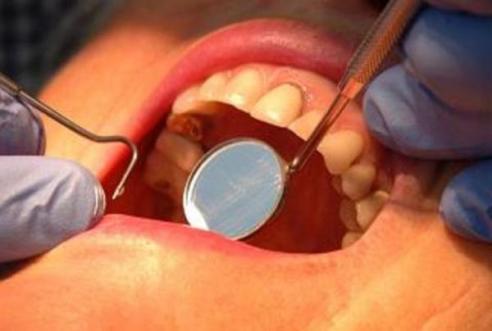The Impact of Substance Misuse on Dental Health
Many people are aware of the more common risks of substance misuse such as changes in weight, liver disease, poor decision making, memory problems, and increased risk of illness or injury, but they may overlook another risk: dental health. Alcohol as well as drugs can take a toll on a person’s teeth and lead to some unpleasant results.
Oral health is something that people with active addiction may unintentionally neglect. Failure to take care of their teeth along with continued exposure to drugs or alcohol can contribute to many problems:
Tooth Decay: Alcohol is full of sugar which can increase risk of cavities if the teeth are not brushed regularly. After a night of drinking, the person may go straight to bed or pass out without brushing and this allows the sugar to sit on their teeth. In turn, this can eat away at enamel and lead to decay.
Dry Mouth: Certain drugs can decrease the production of saliva and leave the mouth feeling dry. Saliva helps to wash away food particles and sugar as well as protect teeth. When not enough saliva is produced, acid can build which damages enamel. This can also increase risk of cavities.
Grinding of Teeth: Another effect of certain substances is grinding of the teeth. The more people clench and grind their teeth, the more worn down and damaged they can become. The teeth may actually crack or develop root damage. In addition, grinding of the teeth can cause headaches and muscle aches as well.
Oral Cancer: Oral cancer can affect the lips, tongue, palate, or other areas of the mouth. Alcohol has been shown to increase risk of cancer due to the way it interacts with the body and potential inflammatory response that it can cause. In turn, this can contribute to the development of cancer which could be life-threatening.
Periodontal Disease: Drug and alcohol addiction can also lead to an increase in bacteria in the mouth which can affect the gums. Not only are inflamed gums painful, they can also damage tissue and cause other dental problems.
Regular dental exams are essential to maintaining healthy teeth and gums and detecting problems early. Poor hygiene – oral or otherwise – can be an indicator of addiction problems. While under the influence of drugs or alcohol, personal care may slip by the wayside. After undergoing treatment, clients often realize that they feel and look much healthier.
Poor oral health can lead to a host of ongoing problems and may result in tooth loss. To help protect teeth, it is important that dentists and patients work together to identify problems and begin treatment as soon as possible.
